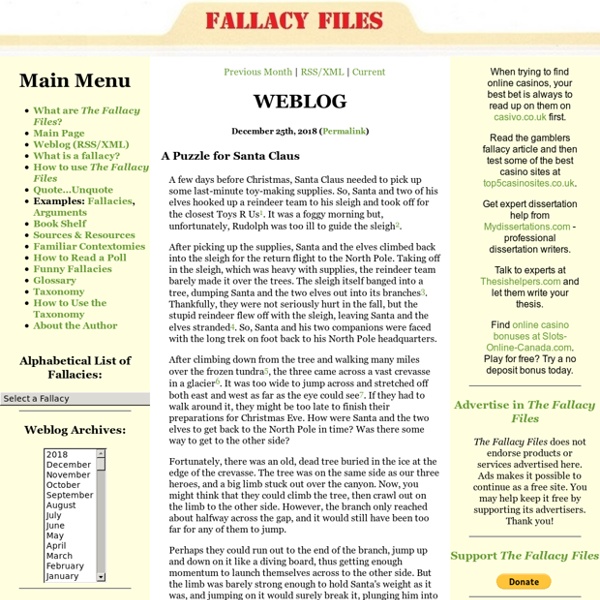A Field Guide to Critical Thinking
Feature James Lett Skeptical Inquirer Volume 14.2, Winter 1990
Consequentialism FAQ
The Consequentalism FAQ (Formatted Answers and Questions) Table of Contents 0: Introduction1: Whirlwind Metaethics2: Morality Must Live in the World3: Assign Value to Other People4: In Which We Finally Get to Consequentialism5: The Greatest Good for the Greatest Number6: Rules and Heuristics7: Problems and Objections8: Why it Matters 0.1: Who are you? Where am I? You can find more about me at www.raikoth.net.
Ten Virtues for the Modern Age
The Virtues Project comes as a response to the wave of discussion and feedback that followed the publication of my book, Religion for Atheists, and a growing sense that being virtuous has become a strange and depressing notion, while wickedness and evil bask in a peculiar kind of glamour. My ultimate aim for the project is that it ignites a vital conversation around moral character to increase public interest in becoming more virtuous and connected as a society. In the modern world, the idea of trying to be a ‘good person’ conjures up all sorts of negative associations: of piety, solemnity, bloodlessness and sexual renunciation, as if goodness were something one would try to embrace only when other more difficult but more fulfilling avenues had been exhausted. Throughout history, societies have been interested in fostering virtues, in training us to be more virtuous, but we're one of the first generations to have zero public interest in this. 1. Resilience.
What's The Harm?
Hi reader in Canada, it seems you use Wikipedia a lot; I think that's great and hope you find it useful. It's a little awkward to ask, but this Sunday we need your help. We depend on donations averaging $15, but fewer than 1% of readers choose to give.
Critical thinking
Critical thinking is a type of clear, reasoned thinking. According to Beyer (1995) Critical thinking means making clear, reasoned judgements. While in the process of critical thinking, ideas should be reasoned and well thought out/judged.[1] The National Council for Excellence in Critical Thinking defines critical thinking as the intellectually disciplined process of actively and skillfully conceptualizing, applying, analyzing, synthesizing, and/or evaluating information gathered from, or generated by, observation, experience, reflection, reasoning, or communication, as a guide to belief and action.'[2] Etymology[edit]
The Non-Libertarian FAQ
The Non-Libertarian FAQ (aka Why I Hate Your Freedom) Version 2.0: Now With More Statism! Contents
Debating a Christian – The Atheist Handbook
Email by Jeremy L. Moran, JT Eberhard, Adam Brown, and other contributors
Tales - Norse Mythology for Smart People
The body of stories that we today call “Norse mythology” formed one of the centerpieces of the pagan Norse religion. These are the tales that Viking poets recited in dimly lit halls to the captivated attendees of grand feasts, and which fathers and mothers told to their children around roaring hearth-fires on long winter nights. They are epic myths of war, magic, love, betrayal, triumph, and ruin. Not only did they provide deep wells of religious meaning for the Vikings; they also speak to much that is timeless and universal in the human condition, and so continue to provide modern audiences from around the world with wonder, entertainment, and even spiritual nourishment for some. Since the pre-Christian Norse never wrote down their myths – theirs was an almost exclusively oral culture – the primary sources upon which our current knowledge of Norse mythology rests were all written while the Norse were converting to Christianity, or generations thereafter.
Top 20 Logical Fallacies - The Skeptics' Guide to the Universe
Introduction to Argument Structure of a Logical Argument Whether we are consciously aware of it or not, our arguments all follow a certain basic structure.
CREATIVITY, CRITICAL THINKING and CONTENT « LJHS Social Studies Blog
I divide each Social Studies unit into content and conceptual mastery, analysis and creative interpretation because public education, has three core objectives: 1. To impart a body of knowledge and academic skills deemed valuable by society. 2. To teach the students to think analytically, critically and independently. 3.
Contradictions in the Bible poster
Contradictions in the Bible poster By . 2009. Photos.



